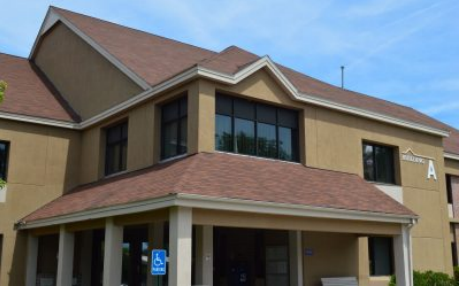Colorectal Cancer Awareness
Colorectal Cancer refers to both colon and rectal cancer. In the United States, it has consistently been in the top three deadliest cancers for both men and women. Colorectal Cancer is preventable and treatable if caught early enough. It’s critical to undergo screening for colorectal cancer because patients can have no symptoms.
Preventing Colorectal Cancer
1 in 20 people will be diagnosed with colorectal cancer in their lifetimes.
A common belief is that colorectal cancer shouldn’t become a concern until over 50. It’s important to know this is not always the case—unfortunately, rates are on the rise for adults under 50.
Colon or rectal cancer resides in the colon and rectum. The colon is also known as the large intestine. It’s five to six feet long! Everything but the last 5-10 inches of the large intestine is the colon. The last 5-10 inches is the rectum.
Cancer can form in any part of the colon or rectum. Early on, it’s common for there to be no symptoms. As cancer progresses, it may hinder your ability to digest and pass food normally causing noticeable bowel issues such as blood in your stool, bloating, dificulty passing stools, or pain.
As a preventable and treatable form of cancer, getting screened is the most critical action you can take. The CDC estimates if everyone eligible got screened, 68% of deaths related to colorectal cancer could be prevented.
All adults should start getting screened at age 45. However, people who are at higher risk (family history of colon cancer or advanced polyps) or who have concerning symptoms (bleeding, weight loss, or anemia), may require a colonoscopy before 45. This should be discussed with your doctor.
Getting screened is the best way to prevent and treat colorectal cancer. In addition, lifestyle changes can also help reduce your risk:
- Being a non-smoker (or becoming a non-smoker)
- Staying physically active with at least 150 minutes of moderate exercise
- Staying within a healthy body weight range for your body
- Reducing intake of red and processed meat
- Using alcohol in moderation
- Eating more dietary fiber
Colorectal cancer can be scary to think about, but preventable action and early treatment can help. More than 1.5 million people in the United States are survivors of colorectal cancer. Even if you are diagnosed with colon cancer, there is hope. The survival rate is highly individualized and depends on the severity of your diagnosis, your treatment plan, genetic and health factors, and much more.
If you’re ready to be proactive about your health and get a screening, give us a call today!
Facility Spotlight Parkland Medical Center in Derry, NH

Interview with Parkland Medical Center in Derry, NH
What makes Parkland stand out compared to other surgical facilities?
We have a dedicated group of experienced nurses who have worked at Parkland Medical Center for over 75 years (combined as a group). Our team of providers and staf provide high-quality, individualized care in a private setting. A diferentiator for Parkland Endoscopy is that we are able to care for patients that may require a higher skilled nursing team due to their health history.
What are the most popular procedures performed at PMC?
Upper endoscopies (EGD’s) and lower endoscopies (colonoscopies).
How has the facility changed policies and procedures in response to COVID?
At Parkland Medical Center, the health and safety of our patients, colleagues and communities is our first priority. We remain vigilant in our mission and commitment to the care and improvement of human life, and have enhanced safety precautions in place. Throughout the COVID-19 pandemic we have adapted accordingly, following Centers for Disease Control and Prevention (CDC) guidelines and State guidelines.
What is Parkland doing to ensure the safety of its patients in regards to Covid19?
All patients are screened twice prior to entering the unit and via a phone call. Patients must be asymptomatic and wear a level 3 mask, which is provided upon entry to the facility. Every staf member protects the patient and themselves by wearing an N-95 mask along with an eye shield. Patients are called the next day for post endoscopy treatment and are asked a list of questions regarding their present condition. Our facility has strict safety precautions and heightened infection prevention policies in place to ensure the safety of our patients as we continue to follow the latest guidance from the CDC.
Patient Education

What are the causes and symptoms of Colorectal Cancer?
Colorectal cancer starts as a growth in the colon, commonly known as polyps. You may have polyps that are noncancerous that can become cancerous over time, which is why the CDC recommends regular screenings.
Risk factors for colorectal cancer include:
- Age
- Family history
- Low fiber and high-fat diets
- Inflammatory intestinal conditions
- Obesity
- Diabetes
- Smoking
- Heavy alcohol use
- Previous radiation therapy in the abdomen
- Sedentary lifestyles
Symptoms vary based on where the cancer is and how large it has grown. If you are experiencing any symptoms, it’s crucial to see your doctor as soon as possible! Symptoms of colorectal cancer are:
- Rectal bleeding
- Blood in the stool
- Discomfort in the abdomen
- Cramps
- Gas
- Changes in bowel movements, such as diarrhea, constipation, or consistency change
- Weakness
- Fatigue
- Unexplained weight loss
Contact us today to schedule your preventative screening for colorectal cancer.

